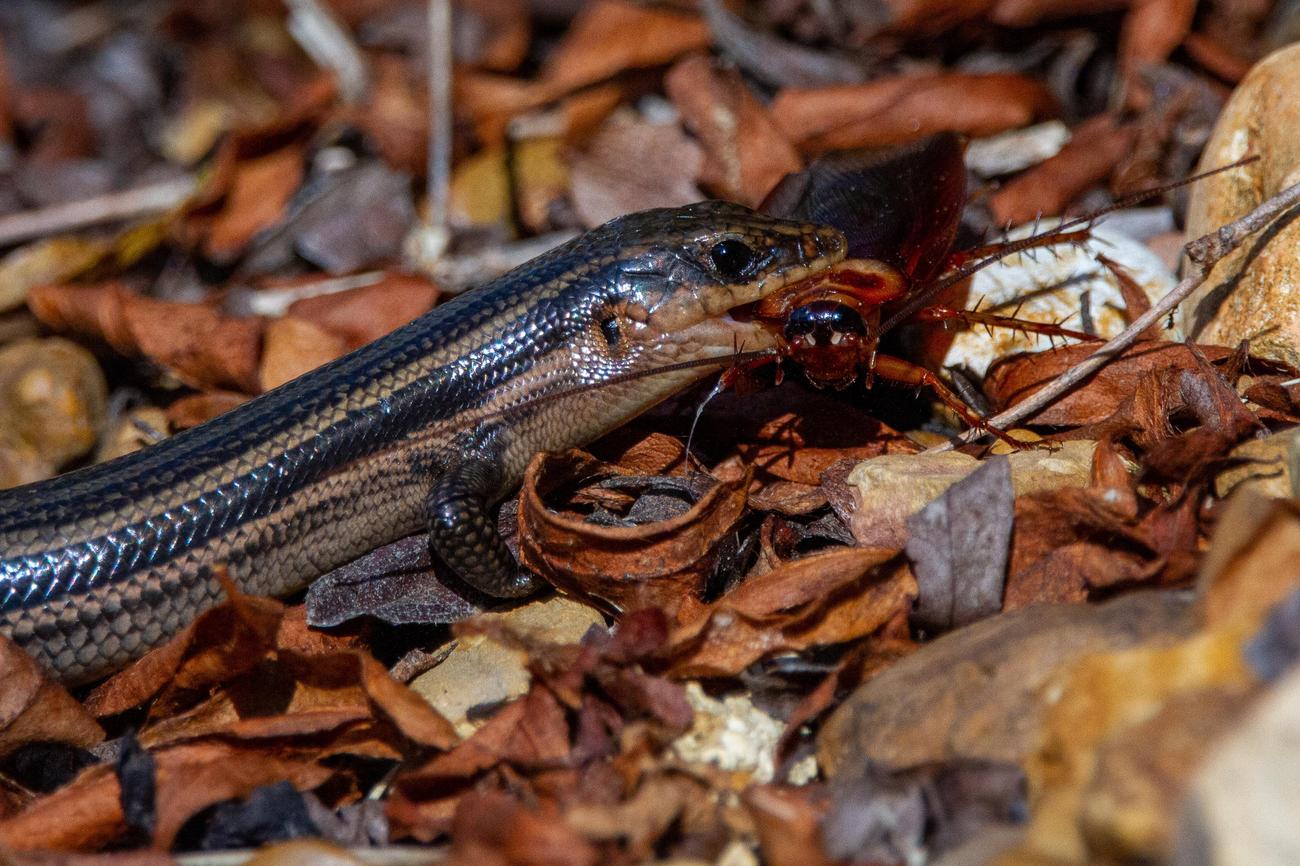Unveiling Roaches’ Light Sensitivity: Are They Truly Scared?

In the mysterious realm of the insect kingdom, few creatures evoke as much disgust and fear as the indomitable cockroach. These resilient pests, known for their nocturnal exploits and uncanny survival skills, have long been subjected to various myths and urban legends. One particularly intriguing question that has left both researchers and homeowners pondering is: are roaches truly scared of light? As an experienced entomologist specializing in the behavior and physiology of insects, I have delved deep into the fascinating world of cockroaches, unveiling their sensitivity towards light and the intricate behavioral changes that follow. Brace yourself for an enlightening journey into the secrets of roaches’ light sensitivity, where we’ll discover if there’s more to their reaction than meets the eye.
Are Roaches Scared of Light?
Roaches and darkness seem to go hand in hand, with these creepy crawlies scurrying around when the lights go out. But have you ever wondered why they seem to avoid light at all costs? Are roaches scared of light? Let’s delve into the fascinating world of these nocturnal insects and uncover the truth.
Roaches have developed a remarkable aversion to light, but it’s not because they are inherently scared of it. Rather, their avoidance of light is a survival strategy that has been finely tuned over millions of years. You see, light serves as a danger warning for roaches, making them more visible to predators lurking in the shadows. It’s a simple equation of risk versus reward for these critters.
When exposed to light, roaches quickly realize that they cannot hide or evade predators in open sight. Their instinctual response is to scuttle away and seek refuge in the dark crevices where they feel safer. It’s not so much fear as it is a primal understanding of the dangers that bright light presents.
But here’s the fascinating part: not all roach species react the same way to light. While some species can see light and flee from it, others won’t even bat an antennae at bright lights. It all comes down to their individual behavioral traits and adaptations to their specific environments. Just like humans, roach species have their own preferences and quirks.
One example of this is the wood roach. Unlike its light-avoiding counterparts, wood roaches are actually attracted to light. They can even venture into houses in search of food, warmer temperatures, and yes, light. These little rebels in the roach world defy the norm and march to the beat of their own drum.
Now, you might be wondering, can we use light as a way to repel most roach species? The answer is a resounding yes! Strategically placing lights in areas where you want to keep roaches away can be an effective method. By disrupting their preference for darkness, you make their hiding places less appealing. It’s like shining a spotlight on their secret hideouts and telling them it’s time to find a new home.
But keep in mind that roaches are resourceful creatures, and they might find alternative ways to adapt to the light. So, it’s essential to combine light with other measures to enhance your chances of success in roach control. Natural repellents, such as citrus, peppermint, and lavender, can also play a role in deterring these resilient insects.
In conclusion, while roaches are not scared of light per se, they have evolved to avoid it as a survival mechanism. They understand that venturing into the spotlight might make them easy targets for their predators. So, the next time you see a roach scurry away when you turn on the light, appreciate the intricate response and strategic thinking behind their actions.
Cockroaches: the stuff of nightmares. These creepy crawlies are not only unsightly but also carry diseases and allergens that can harm you and your loved ones. If you think you already know everything there is to know about cockroaches, think again. Prepare to be shocked by these scary facts about cockroaches. Click here to uncover the truth about these resilient insects and how they can impact your health: scary facts about cockroaches.
Do Lights Keep Roaches Away? What You Need to Know
[youtube v=”P8b32_hAfp0″]
Roaches are often associated with darkness and hiding in crevices, but is it true that keeping lights on can repel them? Let’s explore this common myth and uncover the truth about roaches and light.
Contrary to popular belief, roaches are not inherently afraid of light. While most roach species do prefer darkness and are more active during the night, some are actually attracted to light. These cockroaches can often be found gathering near windows or even on television screens at night.
However, when exposed to light, most roaches will scuttle away and seek refuge in dark crevices. Light serves as a danger warning to roaches, making them more visible to predators. But it’s important to note that not all roach species react the same way to light. For example, wood roaches are actually attracted to light.
So, while strategically placing lights can repel many roach species, it’s crucial to remember that roaches are resourceful creatures. They can adapt to the presence of light and may find alternative ways to survive and infest your space.
If you’re looking for effective roach control, combining light with other measures can enhance your efforts. Consider using natural repellents like citrus, peppermint, or lavender to further deter roaches. You can also explore other proven methods such as boric acid, which is a popular home remedy for roaches.
To use boric acid as a roach deterrent, you can mix equal amounts of boric acid, flour, and sugar to make a dough. Set small balls of the dough in areas where cockroaches are commonly seen. The flour and sugar will attract the roaches, while the boric acid will ultimately kill them.
In conclusion, while keeping lights on might not be a foolproof method to keep roaches away, it can certainly help in deterring them. However, it is crucial to combine light with other roach control measures to effectively combat an infestation. Natural repellents, like citrus and peppermint, and DIY remedies, like boric acid, can further enhance your efforts in keeping your space roach-free.
Remember, roaches are persistent pests, and it’s important to tackle an infestation thoroughly. By taking a proactive approach and combining different strategies, you can effectively control roaches and maintain a clean and pest-free environment.
“While strategically placing lights can repel many roach species, it’s crucial to remember that roaches are resourceful creatures.”

FAQ
Question 1
Are roaches scared of light?
Answer 1
Yes, roaches are generally scared of light. They have a natural aversion to light as it serves as a danger warning, making them more visible to predators. Being nocturnal creatures, roaches are adapted to avoid light as they understand that they can’t hide or evade predators in open sight. This aversion to light is a survival strategy that has worked well for them over millions of years.
Question 2
Do roaches have an allergic reaction to light?
Answer 2
No, roaches do not have an allergic reaction to light. Their avoidance of light is not due to any allergic response. Instead, they avoid any form of light, whether it’s artificial or natural, because it is most likely to get them killed. Roaches have evolved to perceive light as a potential threat and, therefore, go to great lengths to stay out of its reach.
Question 3
Can roaches see and react to bright lights?
Answer 3
Yes, some cockroach species can see light and will react to bright lights by fleeing from them. These species have developed the ability to detect light and perceive it as a potential danger. However, it is important to note that not all cockroaches exhibit the same reaction to bright lights. Some species may not respond to bright lights, while others are more sensitive and will actively avoid them.
Question 4
Are there cockroach species that are attracted to light?
Answer 4
Yes, there are cockroach species that are attracted to light. One example is the wood roach, which can even enter houses in search of food, warmer temperatures, and light. However, it is important to differentiate between species, as most roaches have an inherent aversion to light as a survival instinct. Using lights in strategic places can be an effective method to repel most roach species.
Question 5
Are there natural methods to repel cockroaches apart from using lights?
Answer 5
Yes, apart from using lights strategically, there are natural methods to repel cockroaches. Certain smells, such as citrus, peppermint, and lavender, can repel cockroaches. These scents are known to be unpleasant to roaches and can help deter them from infesting an area. However, it is important to note that while these natural methods may be effective to some extent, professional pest control should be considered for severe infestations.
- Discover Long Black Pepper: Flavor & Health Benefits - April 25, 2025
- Shocking Twists: The Grownup Review: Unreliable Narration - April 25, 2025
- A Quiet Place Book vs Movie: A Deep Dive - April 25, 2025
















